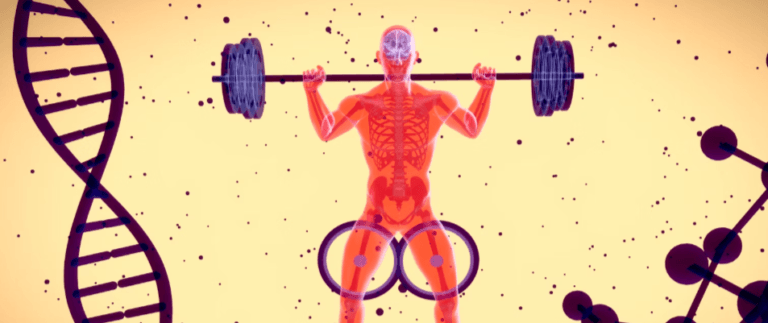Best Way to Eliminate Visceral Fat -By Incorporating the Starvation Diet
Have you ever thought about what goes on inside the human body? Just think about it for a second. Our bodies work seamlessly, day in and day out. Twenty-four-seven, 365 days a year. It processes the daily intake of food. That in and of itself is miraculous. Unfortunately, we have taken our bodies for granted. We overeat. We forget to exercise, and we let ourselves go. As a result, we now have to find the best way to eliminate visceral fat.
Best Way to Eliminate Visceral Fat
Conditions like high blood pressure, high cholesterol, and atherosclerosis (hardening of the arteries) affect the health of your circulatory system. One way to reverse these conditions is by intermittent fasting. This body system is a game changer. In fact, your body circulates about 1.5 gallons of blood every day. Plus, there are 60,000 miles of blood vessels. Fasting is the best way to eliminate visceral fat. Fasting has many health benefits.
Intermittent Fasting Covers a Lot of Bases
That’s a lot of mileage. In summary, intermittent fasting effectively combats high blood pressure, high cholesterol, and atherosclerosis. Your circulatory system will thank you.
Systems are Affected by Intermittent Fasting
The circulatory, digestive, and endocrine systems play a significant role in weight management. For starters, the circulatory system includes the heart and blood vessels. Next, the digestive system involves the breakdown of food. Lastly, the endocrine system releases hormones controlling growth, development, reproduction, and metabolism. This happens through your endocrine system.
The human body is a biological machine made of 15 systems that work together to help sustain our lives. Although the body is comprised of many systems, this article will cover only a few. Thus, our exploration of three important body systems begins.
The Circulatory System is a Powerhouse
The circulatory is also called the cardiovascular system. Therefore, it pumps blood from the heart to the lungs to get oxygen. The heart sends the oxygenated blood through the arteries to the rest of the body. The veins, in turn, carry the blood back to the heart. As a result, the circulation starts all over again. This system is responsible for healthy organism muscles and tissues.
The circulation system also helps the body get rid of waste. This waste includes:
- Carbon dioxide from respiration (breathing)
- Other chemical by-products from your organs
- Wastes from things you eat and drink
The Four Functions of the Digestive System
The digestion system breaks down food into energy our bodies can use. Motility, Digestion, Absorption, and Secretion are the four vital functions of the digestive system. In addition, a litany of organs make up this system.
Motility:
- Food moves through the digestive tract due to a process called peristalsis
- Peristalsis moves the muscles in the GI tract
- Moving food through the digestive system
- Involves the breakdown and mixing of ingested nutrients
Digestion:
- Breaks down food so the body can use it for energy, growth, and cell repair
- Proteins break down into amino acids
- Fats breakdown into fatty acids
- Carbohydrates break down into simple sugars.
Absorption:
- The digested nutrients pass from the gut into bloodstream
- Circulatory and lymph systems can pass these nutrients to the rest of the body
- The lymph system absorbs fatty acids and vitamins
- The blood carries simple sugars, amino acids, glycerol, vitamins, and some salt to the liver
- The liver stores, processes, and delivers these nutrients to the body when needed.
Secretion:
- Enzymes and hormones are released to help the body digest food
- Hormones tell the body what to produce in digestive juices
- These hormones signal the brain when you are hungry or full
- These organs include the mouth, salivary glands, esophagus, stomach, liver, gallbladder, pancreas small intestines.
- Small intestines include the duodenum, Jejunum, and the Ileum
- The large intestines include the appendix, cecum, colon, rectum and anus
Bacteria in the Gastrointestinal Tract
Bacteria in the gastrointestinal tract (gut flora or microbiome) also help with digestion and parts of the nervous and circulatory systems. Keep all of these descriptions in mind during intermittent fasting. Not only are you losing weight, but you are also giving your body the time-out that it needs. Remember, all of these systems are working full-time 24/7 all year long.
Bacteria in the gut has many functions. First of all, it breaks down food. Secondly, it supplies the gut with energy. Thirdly, good bacteria can protect us from harmful pathogens by producing anti-microbial chemicals. Moreover, there are trillions of microbial bacteria living in our gastrointestinal tract. However, gut health can quickly become unhealthy when there is an imbalance in gut bacteria.
Therefore, imbalances in gut bacteria have been linked to a number of health problems. Among these issues include mood disorders, altered immune systems, and obesity. In fact, biologists suggest that there are between 30 trillion and 400 trillion microorganisms in the human gut. In summary, there are also three to 100 times more bacteria in the gut than there are cells in our bodies. That’s a lot of biology. There is a natural way to boost your immune system.
What is Intermittent Fasting
Intermittent fasting is exactly what it sounds like. It is an eating plan that alternates between fasting and eating on a regular schedule. For example, you only eat during intermittent fasting during a specific time. On the other hand, you are fasting for X number of hours each day. At the end of the day, fasting can boost your immune system.
On the intermittent fasting diet, you are eating one meal a couple of days a week. Another key factor is you should find which schedule works best for you. However, this new trend has become very popular, particularly with people who are overweight. Scientific evidence shows that fasting helps your body burn fat.
Intermittent Fasting Plans
Always check with your doctor before starting a fasting schedule. This is not for everyone. Pregnant mothers and preteens should avoid this plan. However, if you decide to take the plunge, I commend you. Here is a typical schedule for a new intermittent faster:
The 16/8 fasting:
- Eating for eight hours and fasting for 16.
- This means that you have your regular meals within an 8-hour window.
- Most people say the 16/8 is easier over the long hall
The 5:2 approach:
- Eat regularly for five days a week
- Limit yourself to one 500-600 calorie meals for two days
- Monday and Thursday could be your one-meal day
How Long Does It Take to Acclimate?
Studies show that it takes two to four weeks for your body to get acclimated to intermittent fasting. Some people experience hunger or crankiness while getting used to their new routines. So, be optimistic as you test out the new diet plan. Another caveat, you can have water or a non-caloric beverage during your fast. Black coffee and tea are permitted. Celery and carrot juice are also fine for first-timers. My first fast was amazing. I slept for 8 hours of it.
What is the Endocrine System?
Endocrine systems are also referred to as hormone glands. They are found in all mammals, birds, fish, and other living organisms. They are made up of:
- Glands throughout the body
- Hormones are released into the bloodstream
- Receptors in the various organs and tissues that respond to the hormones
Important Hormones
The Endocrine System is made up of a variety of hormones. These hormones regulate all biological processes in the body.
The endocrine gland is a multi-tasker. In fact, it covers the processes from conception through adulthood. Another feature of hormones is that they are often produced in exceptionally low amounts within the body. Examples of these processes include:
- Blood sugar control (insulin)
- Function of reproductive organs (testosterone and estradiol)
- Human growth hormone, thyroid hormone
- Regulate menstrual cycle.
Final Wrap Up
Fasting is not for everyone. In fact, long-term fasting may have a powerful effect on all hormones. In women, for example, fasting may cause an estrogen imbalance. Therefore, when considering intermittent fasting, proceed with caution. Fasting could decrease estrogen production. On the other hand, intermittent fasting has many health benefits. Check out this YouTube video about intermittent fasting: https://youtu.be/N2WdImJUERc. For one thing, if it is done the right way, fasting can improve certain health conditions, such as:
- Improved insulin sensitivity
- Reduced body fat
- It may improve cognitive function
- Quiet neuroinflammation in the brain
- Lowers risks of chronic health conditions
Thanks for spending this quality time with me. Please share this article with your family and friends. Also, feel free to leave your comments in the space provided below. I look forward to hearing from you.
Until next post,
Rachele, Founder
mybluegenes.com (w)
rachele@mybluegenes.com (e)





